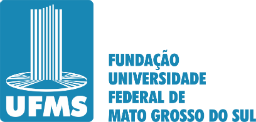Climatic changes and landscape use: understanding anthropic effects temperature rise on the Pantanal biodiversity
DESCRIPTION
Mato Grosso do Sul state is home of Pantanal Wetland, which has been widely studied by national and international researchers. Collaborative learning in an international atmosphere is a key component of successful synthesis initiatives and for creating innovative products that can influence decision-making and public policies for Pantanal. The only graduate program ranked with a score of 6 (out of 7) in the state is based on UFMS, according to the national evaluation program conducted every four years by CAPES. The Graduate Program in Ecology and Conservation, which develops research on ecology and sustainable development, collaborates with several researchers of different graduate programs.
The Project has two main goals:
Goal 1 – To promote the integration of biological monitoring data (integration of technology platforms for monitoring animal movement in real time) We seek out to create an open access database for supporting studies on responses of species and biological communities to climate and land use changes within Pantanal Wetland and its surroundings. Based on these databases, it will be possible seeking for early signs to anticipate taxonomic and functional losses in local and regional scale. This platform will host spatial databases on
(1) vegetal and vertebrate species distribution,
(2) genetic samples stored in digital and physical repositories, and
(3) movement data from vertebrates gained from GPS collars.
The database will make feasible to link several ecological scientific areas, such as metacommunity, phylogeography, genetic landscape, movement ecology, stoichiometry, macroecology, biogeography, conservation biology and restoration ecology. The articulation among different fields within ecological science is itself innovative and a research tendency faced to BigData era and emergent scientific challenges.
Goal 2 – Establish an international network of synthesis to identify early signs that precede functional losses or the local and regional extinction of species. Assess how changes in the landscape resulting from habitat loss and fragmentation, together with climate change predictions, influence the structure of populations, communities and ecosystem functions. A key element of this project is the collaborative learning approach. Large-scale scientific questions, such as biodiversity responses to climate change and land use, can only be addressed in collaboration because they are complex and require an interdisciplinary exchange. Potential products include climate prediction maps, scenarios of land use effects on biodiversity, conservation and restoration strategies, and extensive communication material in interactive media. The products will be applied to the Biota-MS Program for governmental plans in the Alto Paraguay Basin.
The research project with international cooperation entitled “Climate change and land use: towards the understanding of the anthropic effects and the increase of temperature in the Pantanal biodiversity”, proposed by the PPG in Ecology and Conservation.
COORDINATOR
E-mail: luiz.oliveira-santos@ufms.br
MEMBERS

